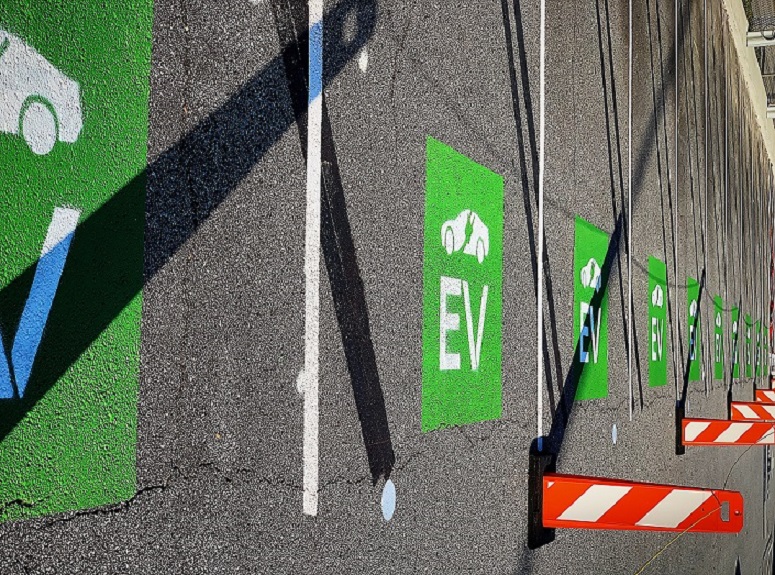For many commercial fleets, planning for a sustainable future means transitioning over to a green fleet, but with any conversion plan of mass scale like this, there’s always one very important question on the mind of every operator; is now the right time?
Let’s look at the pros and cons.
Pro: Charging electric vehicles (EVs) can be cheaper than fuel
Fuel prices are making headlines as they continue to rise, and with the overall cost-of-living crisis on many peoples’ minds too, many fleet operators are seeing this as their perfect opportunity to make the switch to electric vehicles.
According to Carbon Brief, while the UK average cost of filling up a 55-litre petrol car is now almost £100, recharging an electric car to travel an equivalent distance costs just £37. What’s more, out of the approximate 35,000 EV charging devices on Zap-Map across the UK, 5,430 are actually free to use – the equivalent of just over 15% of all EV charging points.
For commercial fleets, this is an incredible benefit, as this also includes on-location charging units at office buildings, motorway service stations and supermarkets, many of which now offer electric vehicle charging across the UK such as Tesco recently announcing plans for 600 of its stores to offer this completely free of charge, as reported by Motoring Electric.
Pro: Switching to EVs will have a significant environmental impact
A recent report from Cornwall Insight states that if all 5.3 million fleet vehicles were to switch from internal combustion engines to electric today, we would see a saving of as much as 30 million tonnes of CO2, equating to roughly 25% of all UK transport emissions
Pro: Overall running costs are cheaper for EVs
As electric vehicles contain fewer moving parts (no clutch or drivetrain required) and have less clogging from exhaust residues, servicing them generally costs between £120 – £150, compared to £200 or over for ICE vehicles.
There are also a number of schemes out there to help commercial fleets specifically with their electrification, such as the Government Plug-in Van Grant which is worth up to 20% off the list price (up to a maximum of £8,000), plus reduced taxes for both business and private use.
There are even grants towards the cost of workplace chargers too, as well as exemptions from London’s Ultra Low Emission Zone (ULEZ) charge.
Con: EVs may not hold their value
According to CarWow, electric cars hold around 48.9% of their value after three years or 36,000 miles. For traditional petrol and diesel cars, this figure is around 40%, though comments from HotCars suggest that many EV owners share concerns around the costs of maintenance after their EV warranty runs out. This is because the current makeup of an electric vehicle is very similar to early-day laptops or smartphones; innovative at their launch, but made obsolete very quickly as soon as the next version was released.
At the minute, EVs are still very much in their early days too, meaning that whilst many people are still getting their heads around the tech, some manufacturers will already be looking for the next breakthrough in battery technology to one-up current models. Many of which is thought to be around the battery, looking at ways to extend life and combat deterioration.
Con: Electric vehicle loads can affect range
As fleet operators will know, adding weight to any commercial vehicle has a negative effect on how much of a load it can carry, and that’s the same for petrol, diesel or electric motors. However, most electric vans offer a cargo volume that matches their diesel versions, because the compact electric motor and gearbox goes where the engine would normally sit, while the batteries tend to go in the space left by a manual gearbox, as well as under the cargo area.
This is because manufacturers want to offer maximum cargo volume for last-mile deliveries, which are usually made up of numerous small parcels that don’t weigh very much. But the concern here is that electric vans will see a reduction in range that that extra weight will cause.
Ultimately, EVs will need more power to get moving, so a commercial vehicles’ range will be shortened as a result.
Con: EV breakdowns can only be handled by fully trained experts
To some fleet operators, this might be seen as a down-side to EVs, but the truth is that as long as you’re with the right breakdown and recovery company, this won’t be a problem at all.
Services such as Egertons offer specialist trained electric vehicle technicians, who will be able to ensure batteries can be safely removed, repaired or replaced by knowing exactly what to look out for.
This is absolutely crucial, as there are significant risks involved when trying to safely recover an electric commercial vehicle, as they carry new and very different hazards to what’s normally associated with repairing vehicles or roadside recovery. These include high voltage components and cabling which, if tampered with by anyone other than an expert who knows what they’re doing, could cause a fatal electric shock, storage of electrical energy which has potential to explode or catch fire or even the vehicle itself that may move unexpectedly due to magnetic forces within the motors.
Knowing who to call when you’re stuck
At Egertons, our 55-year heritage has led us to be one of the UK’s leading vehicle rescue and recovery operators, and we’re proud to say that our team includes fully trained electric vehicle specialist technicians who are able to safely help in the recovery of your electric commercial vehicles.
This is because, for us, it’s so important to always invest back into our service, allowing us to grow our fleet and expert team to offer the best and safest service possible.
With Egertons, you make the call, and we’ll do the rest.
We’re ready for electric vehicles when you are.


